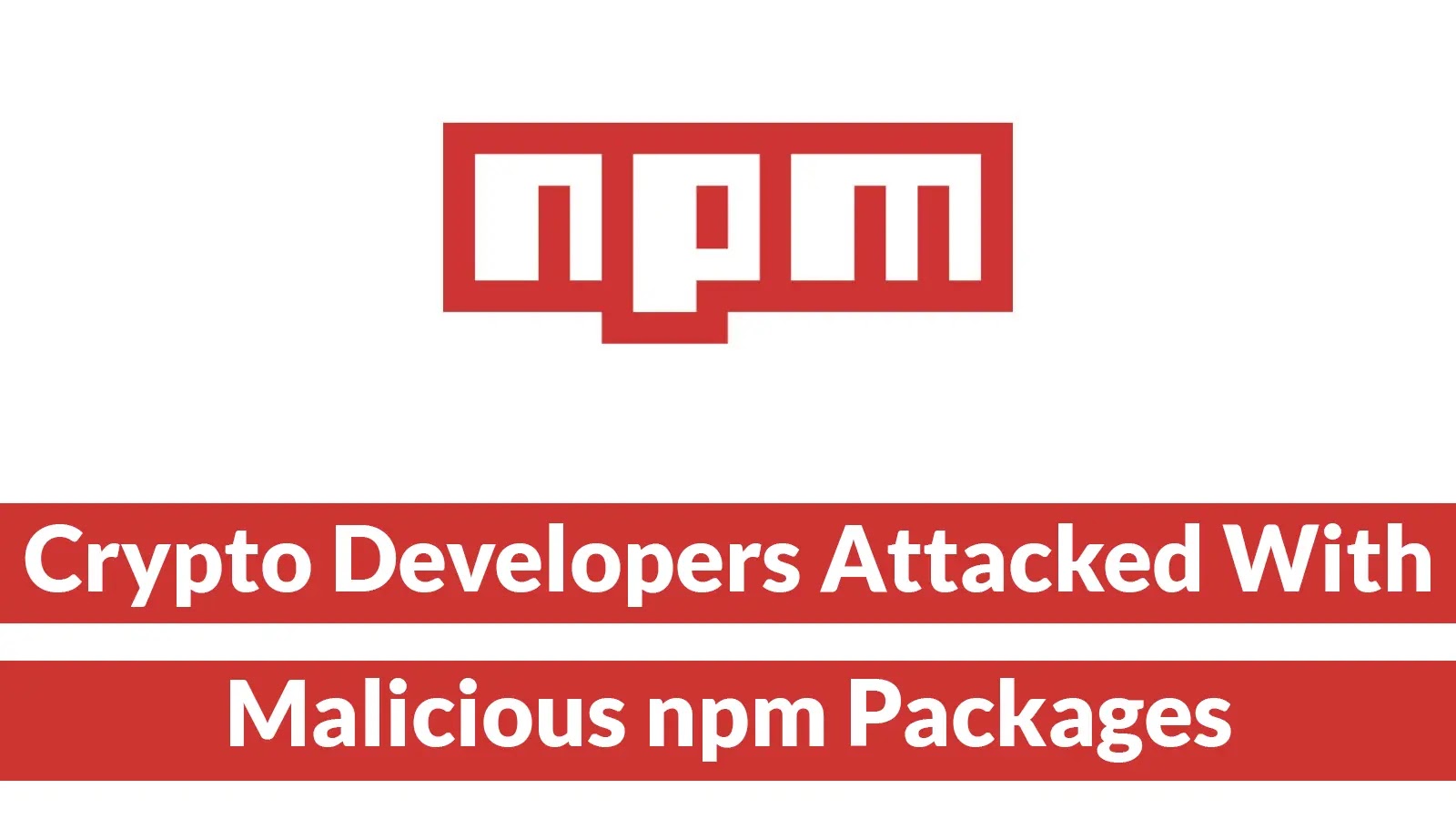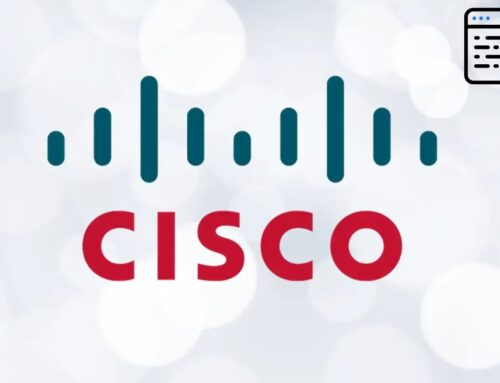
Crypto Developers Attacked With Malicious npm Packages to Steal Login Details
Unmasking “Solana-Scan”: Malicious npm Packages Target Crypto Developers
The cryptocurrency development landscape, a frontier of innovation and rapid evolution, faces a persistent and escalating threat from malicious actors. A sophisticated new campaign, dubbed “Solana-Scan” by researchers, has emerged, specifically targeting developers within the Solana ecosystem. This threat leverages seemingly innocuous npm packages to ensnare unsuspecting developers, ultimately aiming to pilfer sensitive credentials and cryptocurrency wallet information. This report delves into the mechanics of this attack, its implications, and crucial remediation strategies.
The Deceptive Lure: Malicious npm Packages
At the heart of the “Solana-Scan” campaign lies the deceptive distribution of malicious npm packages. Attackers masquerade these packages as legitimate software development kits (SDKs) or essential scanning tools for the Solana blockchain. Developers, in their daily workflow, often rely on publicly available packages to streamline development and integrate functionalities. This reliance creates a fertile ground for supply chain attacks.
The campaign centers around multiple malicious npm packages, including:
solana-pump-test- Other unnamed packages designed to mimic legitimate Solana tools (further details often remain undisclosed by researchers to prevent aiding attackers).
These packages, once integrated into a developer’s project, execute malicious code designed to perform reconnaissance on the host system and exfiltrate critical data. The specific methods used for data exfiltration are often obfuscated, involving encoded communications or seemingly benign network requests.
Understanding the Attack Vector: Software Supply Chain Exploitation
The “Solana-Scan” campaign is a prime example of a software supply chain attack. This type of attack exploits the trust between developers and the third-party components they use. Instead of directly attacking a target organization’s infrastructure, adversaries inject malicious code into a component that the target then incorporates into their own systems or products. For developers, npm is a critical part of their supply chain for dependencies.
The attackers behind “Solana-Scan” effectively capitalized on the following:
- Trust in Public Repositories: Developers generally trust packages found on public registries like npm, assuming a certain level of vetting.
- Dependency Overload: Modern applications often rely on hundreds, if not thousands, of external dependencies, making comprehensive vetting of each one a daunting task.
- Social Engineering: The naming conventions of the malicious packages are carefully chosen to appear legitimate and entice developers to install them.
The Impact: Credential Theft and Wallet Compromise
The primary objective of the “Solana-Scan” campaign is the theft of sensitive credentials and cryptocurrency wallet information. This includes, but is not limited to:
- Private keys for cryptocurrency wallets.
- Seed phrases.
- API keys for exchanges or development tools.
- Login credentials for development platforms (GitHub, GitLab, etc.).
Compromise of these assets can lead to significant financial losses for developers and, by extension, their projects and users. The long-term impact can extend to reputational damage, project abandonment, and a significant blow to the broader cryptocurrency ecosystem’s security posture.
Remediation Actions for Crypto Developers
Protecting against sophisticated supply chain attacks like “Solana-Scan” requires a multi-layered approach and vigilance. Developers, especially those working with sensitive assets like cryptocurrencies, must adopt robust security practices.
- Scrutinize npm Package Names and Publishers: Before installing any npm package, always verify the package name, the publisher’s reputation, and the package’s download count and age. Look for official links or documentation that confirm the legitimacy of the package.
- Employ Dependency Scanning Tools: Integrate tools into your CI/CD pipeline that automatically scan dependencies for known vulnerabilities and malicious code.
- Implement Least Privilege: Grant development environments and tools only the minimum necessary permissions.
- Regularly Update Dependencies: Keep all package dependencies up-to-date to benefit from security patches. However,be cautious about immediate updates if a specific vulnerability (e.g., CVE-2023-45815, an example of a recent npm vulnerability) has just been disclosed, as attackers can quickly weaponize newly published vulnerabilities.
- Network Monitoring: Monitor outbound network connections from development machines for suspicious activity, such as connections to unusual IP addresses or excessive data transfer.
- Use Hardware Wallets: For storing significant cryptocurrency assets, always opt for hardware wallets, which provide the highest level of security by keeping private keys offline.
- Principle of Zero Trust: Assume that no user or system, inside or outside the network, should be trusted by default. Verify everything.
- Developer Education: Continuously educate development teams on the latest threat vectors, common social engineering tactics, and secure coding practices.
Tools for Detection and Mitigation
Adopting appropriate security tools is critical for identifying and mitigating risks associated with malicious npm packages.
| Tool Name | Purpose | Link |
|---|---|---|
| npm audit | Identifies known vulnerabilities in dependencies. | https://docs.npmjs.com/cli/v8/commands/npm-audit |
| Snyk | Automated security scanning for open source dependencies, code, and containers. | https://snyk.io/ |
| Dependabot (GitHub) | Automates dependency updates and vulnerability alerts within GitHub repositories. | https://docs.github.com/en/code-security/dependabot/dependabot-security-updates/about-dependabot-security-updates |
| Sonatype Nexus Lifecycle | Software supply chain management and component governance. | https://www.sonatype.com/products/sonatype-nexus-lifecycle |
| Truffle Security Scan | For Solidity smart contract security analysis. | https://trufflesuite.com/docs/truffle/reference/truffle-commands/#security |
Conclusion: Fortifying the Crypto Development Frontier
The “Solana-Scan” campaign underscores the evolving sophistication of attacks targeting the software supply chain, particularly for high-value targets like cryptocurrency developers. Maintaining a robust security posture against such persistent threats necessitates a combination of diligent package scrutiny, continuous security education, and the strategic deployment of automated vulnerability scanning and dependency management tools. By understanding the attacker’s methodology and implementing proactive remediation strategies, the cryptocurrency development community can collectively fortify its defenses and protect the integrity of its projects and assets.





